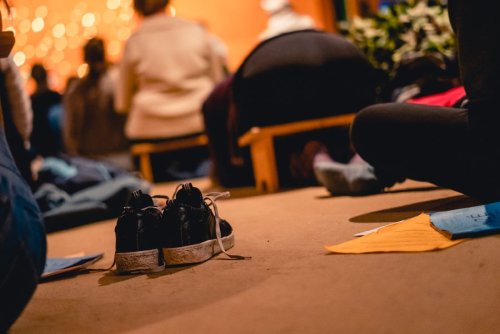
[1]
- plan an evening prayer vigil for peace
Open by naming countries where war is present. Pray for half an hour in silence for those caught in the conflicts. Then through song, Bible readings and intercessions continue the prayer. Finish with a time of prayer around the cross.
- a pilgrimage for peace
Invite people from different church communities of all generations, backgrounds and abilities. Plan a short pilgrimage from church to church, stopping to pray for a moment in each place for peace.
- listening to the voice of those who suffer
Ask in your community if there are any direct links with people in zones of conflict and see if some would be willing to speak of their experiences, fears and hopes. Listen to these testimonies during a time of prayer or pilgrimage.
- acts of solidarity
Check in your neighbourhood if there are support groups for people who are victims of war. What can you do to support their initiatives ? Can you visit the support group and listen to their suggestions ?
- prayer stones
Prepare small stones gathered locally and paint on each one the name of a country hit by war, or even the names of people you know in those countries. Write a short note for each country or person explaining the situation. At the end of a time of prayer, participants take a stone and pray for that person or country each day.
- for people who cannot leave easily their living space
On Friday, keep a time for silent prayer for peace and then listen to the evening prayer broadcast from Taizé. Write to the address pilgrims taize.fr if you want to receive the names of the countries or people we will pray for in Taizé.
We cannot seek to be builders of unity or pilgrims of peace without listening to the voices of those who suffer from deadly conflicts or from the violence that increasingly lurks in our societies.
There can be no lasting peace without justice for all, especially those who suffer. How does this challenge us?
 TAIZÉ
TAIZÉ